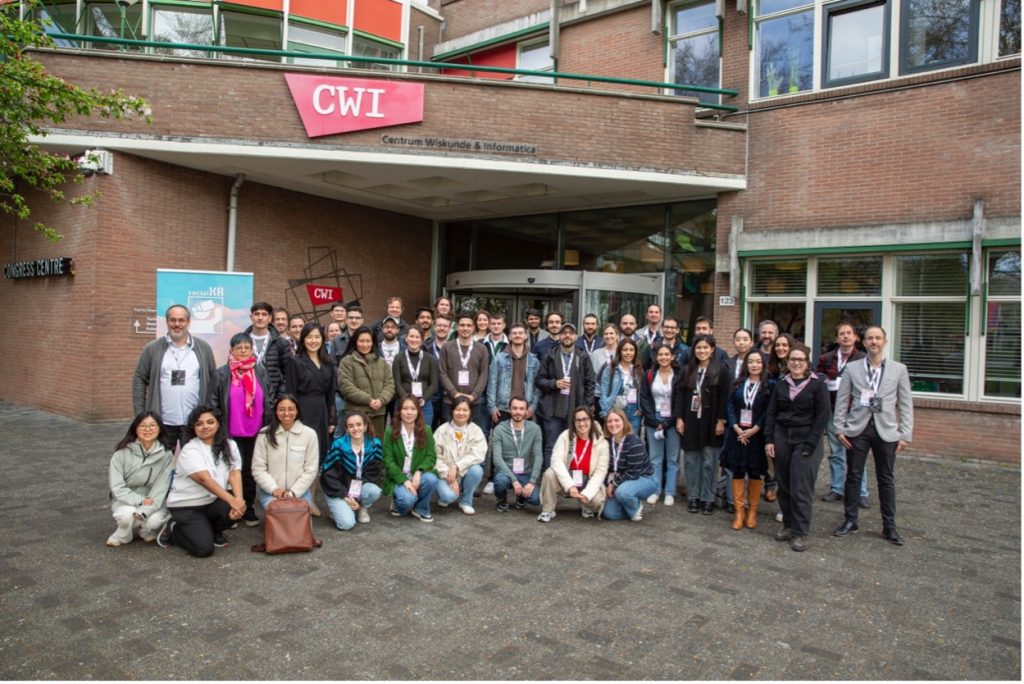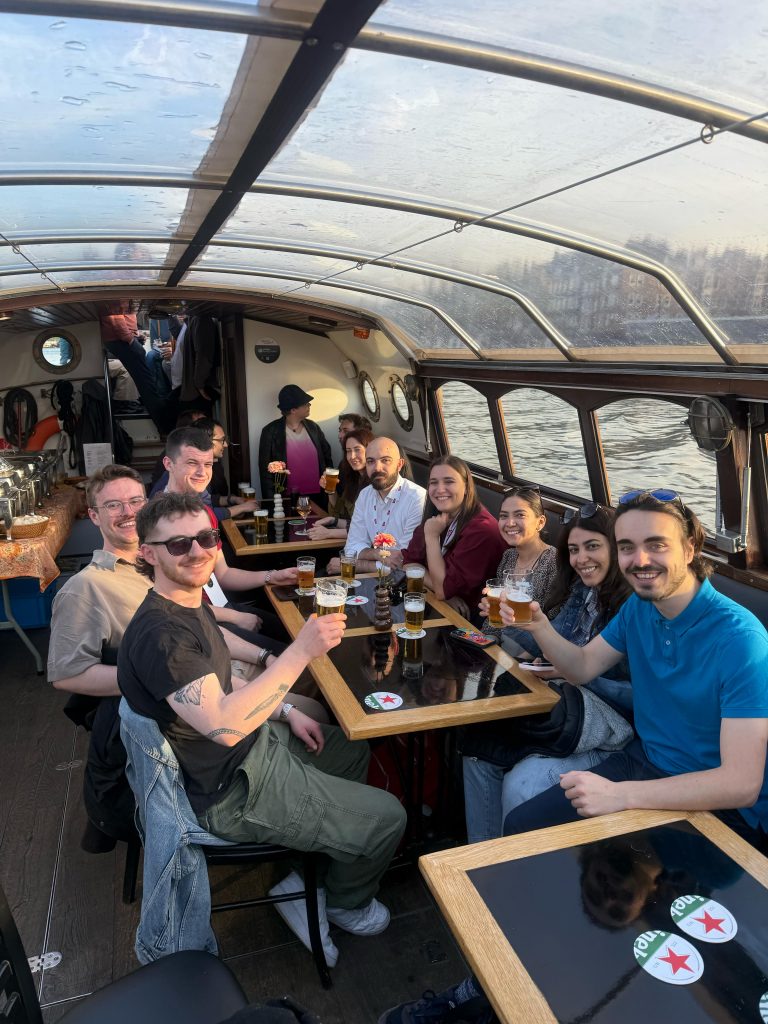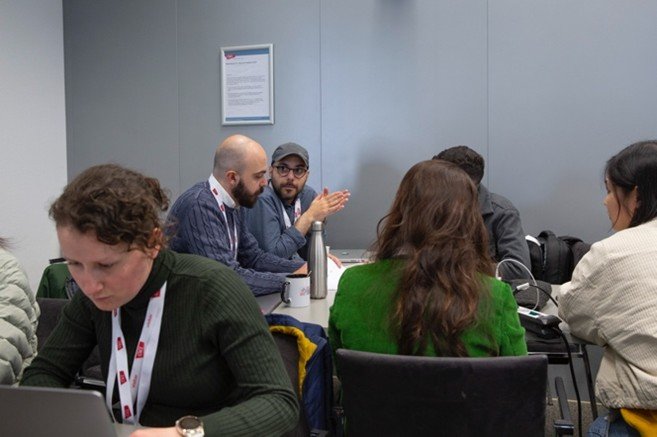Author: Silvia Rossi, Centrum Wiskunde & Informatica (CWI) - The Netherlands
The 3rd edition of the Spring School on Social XR organised by Distributed and Interactive Systems group (DIS) at CWI in Amsterdam took place from 7 to 10 April 2025. The event attracted 30 students from different disciplines (technology, social sciences, and humanities) and countries from the world (Europe but also Canada and USA). The event was organized by Silvia Rossi, Irene Viola, Thomas Röggla, and Pablo Cesar from CWI; and Omar Niamut from TNO. Also this year, it was co-sponsored by ACM SIGMM, thanks to the founding for Special initiatives, and for the first time has been recognised as an ACM Europe Council Seasonal School.

Across 9 lectures (4 of them open to public) and three hands‑on workshops led by 14 international instructors, participants had the possibility to have cross-domain interactions on Social XR. Sessions ranged from photorealistic avatar capture and behaviour modelling, through AI‑driven volumetric‑video production, low‑latency streaming and novel rendering techniques, to rigorous QoE evaluation frameworks and open immersive‑media datasets. A new thematic topic this year tackled the privacy, security and UX challenges that arise when immersive systems move from lab prototypes to real‑world communication platforms. Together, they provided a holistic perspective, helping participants to better understand the area and to initiate a network of collaboration to overcome current limitations of current real-time conferencing systems. A unique feature of the school is its Open Days, where selected keynotes are made publicly accessible both in person and via live streaming, ensuring broader engagement with the XR research community. In addition to theoretical and hands-on sessions, the school supports networking and discussions through dedicated events, including a poster presentation where participants can receive feedback from peers and experts in the field of Social XR.

The list of talks were:
- “The Multiple Dimensions of Social in Social XR” by Sun Joo (Grace) Ahn (University of Georgia, USA)
- “Shaping VR Experiences: Designing Applications and Experiences for Quality of Experience Assessment” by Marco Carli (Universitá degli Studi Roma TRE, Italy)
- “Making a Virtual Reality” by Elmar Eisemann (TU Delft, The Netherlands)
- “Robotic Avatar Mediated Social Interaction” by Jan van Erp (TNO & University of Twente, The Netherlands)
- “Novel Opportunities and Emerging Risks of Social Virtual Reality Spaces for Online Interactions” by Guo Freeman (Clemson University, USA)
- “Privacy, Security and UX Challenges in (Social) XR: an Overview” by Katrien de Moor (NTNU, Norway)
- “AI-based Volumetric Content Creation for Immersive XR Experiences and Production Workflows” by Aljosa Smolic (Hochschule Luzern, Switzerland)
- “Changing Habits, One Experience at a Time” by Funda Yildirim (University of Twente, The Netherlands)
- “Challenge-Driven Quality Evaluation and Dataset Development for Immersive Visual Experiences” by Emin Zerman (Mid Sweden University, Sweden)
The list of Workshops were:
- “Cooperative Development of Social XR Evaluation Methods” by Jesús Gutiérrez (Universidad Politecnica de Madrid, Spain) and Pablo Pérez (Nokia XR Labs, Spain)
- “From Principle to Practice: Public Values in Action” by Mariëtte van Huijstee (Rathenau Institute, The Netherlands) and Paulien Dresscher (PublicSpaces, The Netherlands)
- “Interoperability: What is a Visual Positioning System and Why an Open Source One and Interoperability Between These Systems Need to be Established” by Alina Kadlubsky (Open AR Cloud Europe, Germany)

Poster Presentation Session 
Group Working during Workshop session


